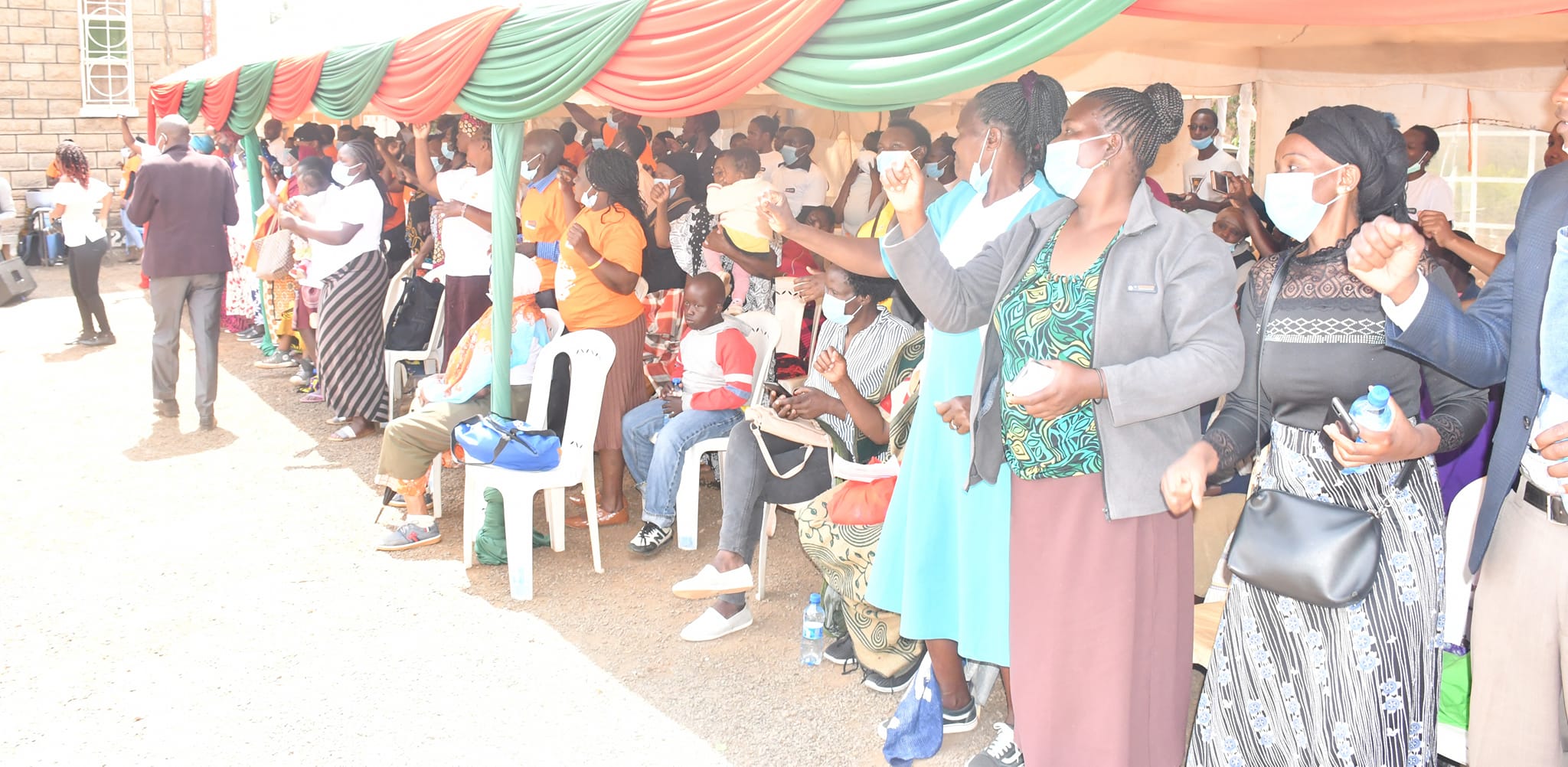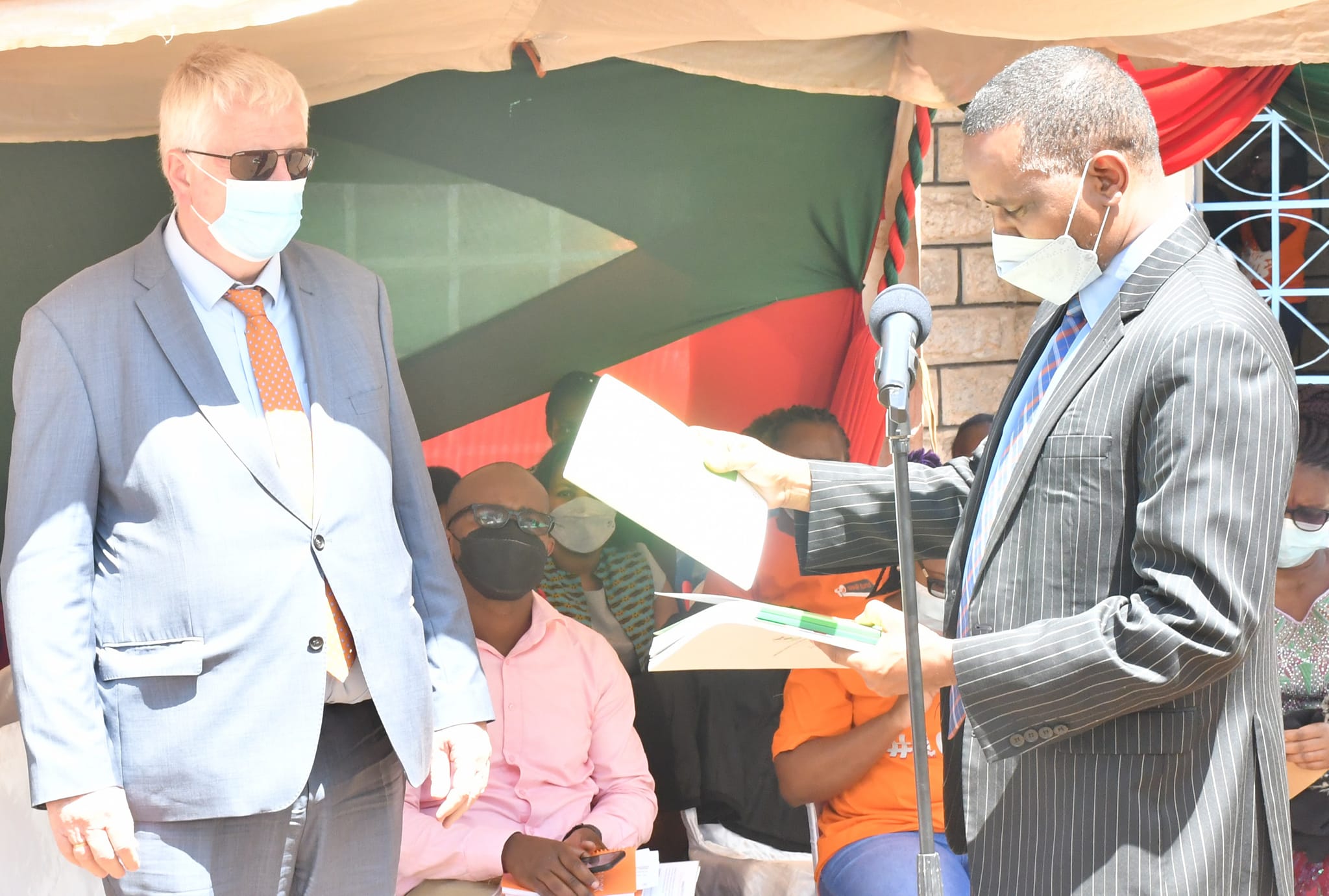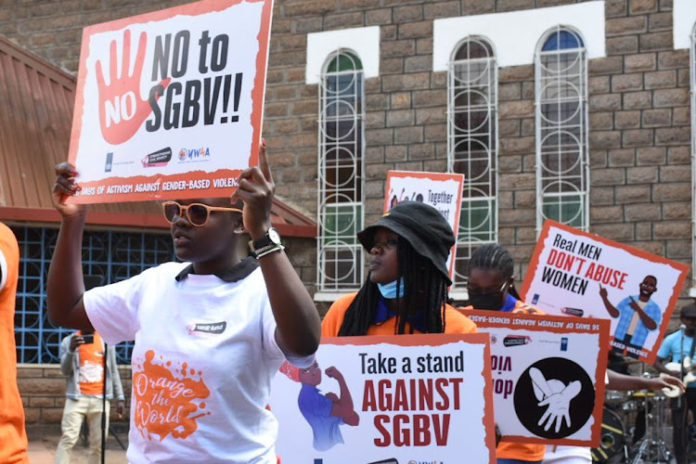By Henry Owino
Nairobi, Kenya: Sexual and gender-based violence (SGBV) of late has been on the increase nearly every day, a case being reported. The nationwide upsurge trend has become a concern worrying the government, non-governmental organizations (NGOs), CBOs, and religious leaders that are now making the country look ugly and scary.
As result, the government spends Ksh16 million annually on SGBV cases in terms of transport, treatment, and safe houses among other essential services offered to survivors or victims. Many survivors have to be relocated to safer places because most perpetrators are people known to them.
At the safe havens, the survivors undergo counseling, rehabilitation, or treatment with experts while legal justice is pursued in the Court of Law. So, a lot of money is spent to carter for such services which otherwise could be constructively used in other developments to benefit Kenyans.
These remarks were made by Rachel Shebesh, Gender Chief Administrative Secretary (CAS) in a speech read on her behalf by Esther during a sensitization forum held at Africa Inland Church, Kibera to mark this year’s (2021) 16 Days of Activism against SGBV.
This year’s global theme dubbed: ‘Orange the World; End Violence Against Women and Girls Now’. The international annual event always runs from 25 November to 10 December.
The celebrations also coincided with the International Day for Human Rights and brought together organizations that help to fight for the rights of women, girls, and the youth in Kenya as well as girls and boys from the Kibera community.

Pamela Karimi, Director of Gender for the County of Nairobi, said the time has come to make young adolescents aware of their rights so that they know how to protect themselves.
“With the Covid-19 pandemic, we experienced 1,600 cases of teen pregnancies that resulted either from defilement or as a consequence of being idle,” Karimi said.
Karimi acknowledged that prosecution of perpetrators of sexual gender-based violence is a challenge. She urged members of the Kibera community to help flush-out perpetrators instead of hiding them.
The County Director for Gender commended residents of Kibera for actively taking part in the fight against SGBV during 16 days of sensitization. She, however, challenged residents to apply the same energy and efforts even after 16 days of activism campaigns that ended on December 10.
“Put forward the same vigor of a campaign I see here beyond the 16 days of sensitization to end violence against women and girls even after this dedicated period,” Karimi advised.
Sixteen days of SGBV is an annual international campaign organized strategy by individuals and organizations around the world, to call for the prevention and elimination of violence against women and girls.
Marteen Brouwer, the Netherlands Ambassador to Kenya who was the Chief guest at the forum said one major way of ensuring the safety of adolescents, is actually engaging them directly.
He disclosed that the government of the Netherlands sponsored Sexual Reproductive Health Rights (SRHR) Funds which are meant to help the youth in underserved areas get access to sexual reproductive health products.
“It is our hope that women’s rights groups will make strides in ending GBV during this period and help uphold women and girls rights, including access to sexual reproductive health resources,” Brouwer said.
“We hope that engaging the youth not forgetting young boys, will help end stereotypes that may lead to violence against women,” he added. In order to end GBV, Brouwer said that we must first end gender inequality in our communities.”
In order to end gender-based violence, Brouwer said that families must first end gender inequality in our communities.
“Gender inequality means no human inequalities such as poverty, ethnicity, disability discrimination. Once we end those, we will move towards ending gender-based violence,” Brouwer concluded.
Consequently, Dr. Mohammed Sheikh, Director General, National Council for Population and Development (NCPD) said GBV is a serious problem with lasting impacts on survivors, their families, and communities.
“GBV is a serious human rights violation and we need to put an end to the social, economic, and/or cultural conditions that expose women and girls to GBV,” Dr. Sheikh asserted.

He said GBV has especially increased among the youth in times of COVID-19. Some of the containment measures to mitigate the impact of COVID-19 such as national curfews, lockdowns and school closures exposed adolescents and young people to increased incidences of SGBV.
He regretted that counties data shows Nairobi leading in cases of SGBV to adolescents with 1659 having suffered the violence this year (2021), mostly in informal settlements. Kibera estate notwithstanding.
Dr Sheikh it is one of the triple threats to adolescence with 50% of SGBV cases happening among adolescents. It has rendered thousands of teenage girls pregnant or infected with HIV/AIDS and some dropping out of school.
The trend threatens human capital development needed for rapid economic growth and so becomes a hindrance to Kenya achieving Demographic Dividend. Thus, bonus that can be accrued from the huge youth population participating in economic activities.
Dr. Sheikh revealed that the government has always been committed to the elimination of all forms of GBV and to the effective provision of quality and accessible services to all survivors. The commitments were renewed at the International Conference on Population and Development (ICPD25) in 2019 held in Nairobi where Kenya committed to eliminating by 2030, all forms of GBV.
“Ending teenage pregnancy is part of the ICPD25 Kenya Country Commitments which Kenya made at the Nairobi Summit. NCPD is the coordinator of the ‘Let’s Act to End Teenage Pregnancy campaign’ which is a joint effort of Government and partners,” Dr. Sheikh explained. It involves engaging different stakeholders on issues related to teenage pregnancy, HIV, and GBV,” he added.
A lot of advocacy and public education interventions have been conducted and are ongoing supported by the campaign. Some of them are in popular television programs like Tahidi High which airs on Citizen television.
Dr. Sheikh said NCPD has also been coordinating the process of the development of Investment Cases for Transformative results on ICPD25 commitments. One of the targeted result areas is Zero GBV. In line with the policies and strategies developed by the government to meet this objective, the investment case on GBV aims at high-impact and cost-effective interventions to accelerate progress towards the achievement of the transformative results committed to by the government.
The Investment case on Zero GBV will inform national and county policies, identification of investment opportunities, guide resource allocation, and financing and enable better positioning of the investments for the achievement of the transformative results including returns accruing from investments in ending gender-based violence and harmful practices at national and county levels.
Some of the proposed interventions to prevent and respond to Gender-based violence
- Increasing access to justice for survivors of gender-based violence,
- Providing support to women who have been affected by gender-based violence, and
- Preventing gender-based violence.
The report will be ready in early 2022 and will be disseminated to all stakeholders.
A very important role CSOs can play in the fight against GBV is improving social services for survivors of violence by expanding, improving, and integrating services such as telephone hotlines, emergency shelters, legal assistance, counseling services, psychological care, support groups, income generation programs, and child welfare services.
“I would like to reiterate that NCPD is ready to partner with CSOs in these efforts because it is the synergy of our joint efforts as Government, CSOs, and partners that will give transformative results in the interventions against GBV and teenage pregnancy,” Dr. Sheikh assured.














